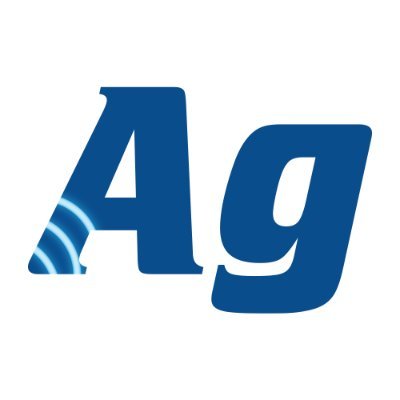
Overview
The vegetable and melon farming industry is a vital sector of agriculture focused on cultivating and harvesting various types of vegetables and melons. It involves the production of nutritious and diverse crops, such as tomatoes, cucumbers, carrots, lettuce, watermelons, and cantaloupes. Farmers employ various techniques and technologies to maximize yields, ensure quality, and meet the growing demand for fresh produce in local and global markets.
GAO’s RFID, BLE, IoT, and drone technologies have helped its customers in the coal mining industry to improve their work processes, their operations and productivity by better management of their staff, materials and operational equipment such as tractors, planters and seeders, irrigation systems, harvesters, cultivators, fertilizer spreaders, sprayers, mulching equipment, sorting and grading machines, storage facilities, trays, crates and containers, tools and accessories, safety equipment.
Ranked as one of the top 10 global RFID suppliers, GAO RFID Inc. is based in New York City, U.S. and Toronto, Canada. GAO offers a comprehensive selection of UHF, HF (including NFC) and LF RFID (radio frequency identification) readers and tags, BLE (Low Energy Bluetooth) gateways and beacons, and various RFID and BLE systems such as people tracking, asset tracking, access control, parking control, fleet management, WIP (work in progress), traceability. Such RFID and BLE products and systems, as well as its IoT and drone technologies, have been successfully deployed for the vegetable and melon farming industry.
Applications &Benefits of GAO’s RFID, BLE, IoT & Drones for the Vegetable and Melon Farming
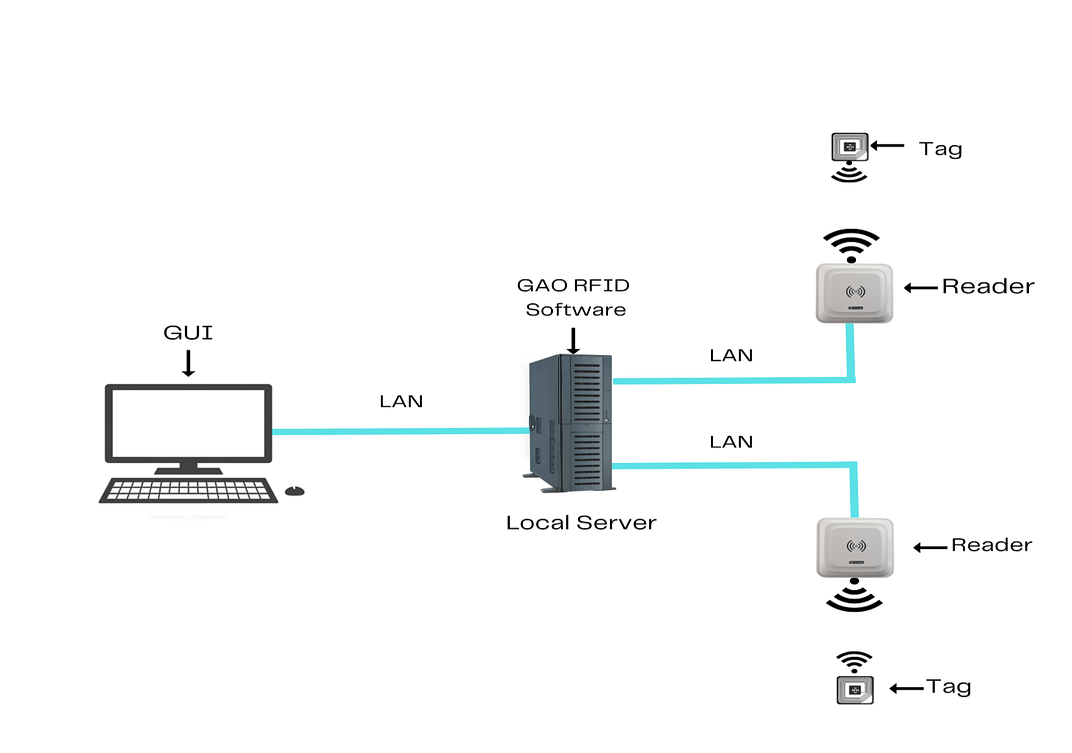 To satisfy its customers, GAO’s RFID or RFID Systems for the vegetable and melon farming are offered in2 versions. One version is that its software is running on a local server, and another version is that its software runs in the cloud. The above illustrates GAO system for the vegetable and melon farming with its software running on a local server.
To satisfy its customers, GAO’s RFID or RFID Systems for the vegetable and melon farming are offered in2 versions. One version is that its software is running on a local server, and another version is that its software runs in the cloud. The above illustrates GAO system for the vegetable and melon farming with its software running on a local server.
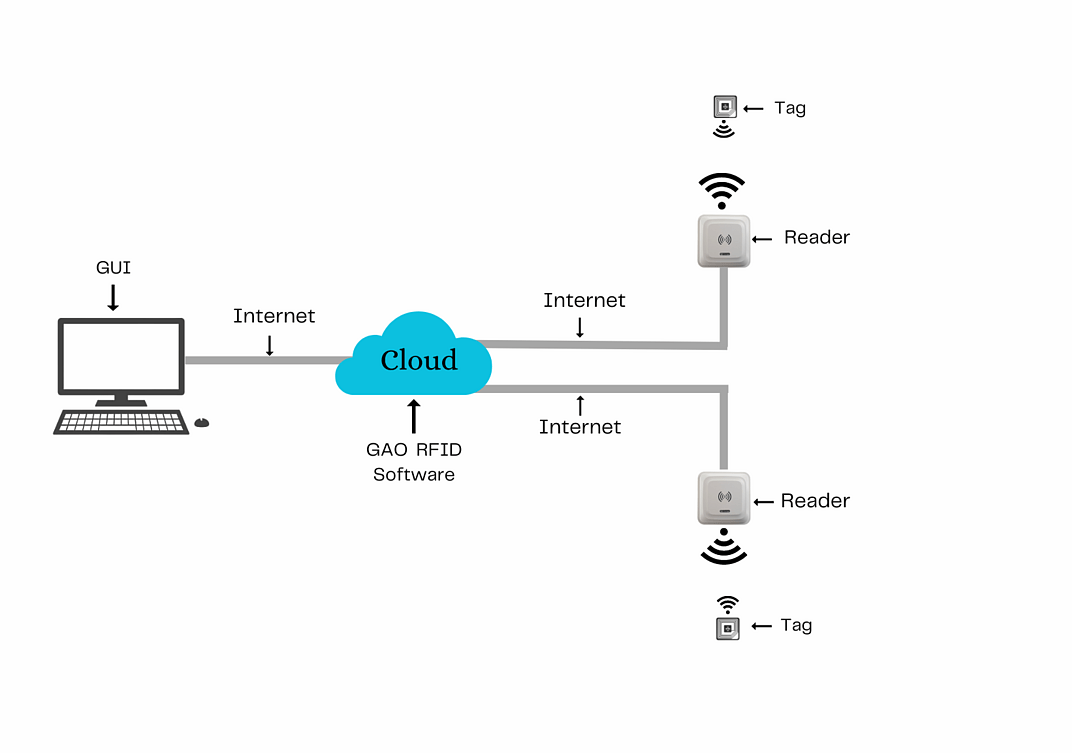 The above illustrates GAO system for the vegetable and melon farming with its software running in cloud.
The above illustrates GAO system for the vegetable and melon farming with its software running in cloud.
GAO’s RFID technologies bring many benefits to the vegetable and melon farming industry
- Enhanced traceability: Our RFID tags can be attached to individual plants or products, allowing for accurate and real-time tracking throughout the supply chain. This enables farmers to trace the origin, movement, and handling of produce, ensuring food safety and quality control.
- Inventory management: GAO’s RFID technology enables automated and efficient inventory management by providing real-time visibility of stock levels. This helps farmers optimize their production and distribution processes, reducing wastage and ensuring timely availability of products.
- Improved quality control: RFID tags of GAO can store information about the product’s characteristics, such as harvest date, variety, and quality parameters. This allows for better monitoring and control of product quality, enabling timely interventions to maintain freshness and reduce spoilage.
- Streamlined logistics: Our RFID technology simplifies logistics operations by automating processes such as loading, unloading, and inventory verification. It enables faster and more accurate data capture, reducing manual errors and improving overall supply chain efficiency.
- Enhanced supply chain transparency: GAO’s RFID-enabled systems provide increased transparency across the supply chain, from farm to table. This transparency helps build trust among consumers by providing information about the origin, cultivation practices, and handling of the produce.
GAO’s BLE technologies offer longer reading range and particularly attractive for applications with larger work spaces within the vegetable and melon farming industry
- Real-time monitoring: Our company’s BLE sensors can be used to monitor various environmental parameters such as temperature, humidity, and soil moisture. This allows farmers to obtain real-time data and make informed decisions about irrigation, pest control, and other farming practices.
- Precision agriculture: GAO’s BLE technology enables precise and localized data collection, enabling farmers to optimize resource allocation. By understanding specific crop needs, farmers can reduce water usage, fertilizer application, and energy consumption, leading to improved sustainability and cost savings.
- Remote management: Our company’s BLE connected devices can be remotely monitored and controlled, allowing farmers to manage their farms more efficiently. For example, they can adjust irrigation systems, turn on or off equipment, or receive alerts about critical conditions, even when they are away from the farm.
- Disease and pest management: GAO’s BLE sensors can help in early detection of diseases and pests. By monitoring environmental conditions and receiving alerts for potential threats, farmers can take prompt actions to prevent outbreaks, minimize crop damage, and reduce the need for chemical interventions.
GAO’s RFID and drone technologies are often combined and such solutions offer the following benefits to the vegetable and melon farming industry
- Time and labor savings: By integrating RFID and drone technologies, farmers can automate several tasks that traditionally required manual labor and time-consuming efforts. Drone-based scanning and RFID data collection significantly reduce the time and effort required for inventory management, crop monitoring, and field inspections.
- Improved data analytics: The combination of RFID and drone technologies generates vast amounts of data that can be analyzed to gain insights into crop performance, resource usage, and market trends. Advanced analytics can help farmers make data-driven decisions, identify areas for improvement, and optimize farming practices for increased profitability.
- Environmental sustainability: By leveraging RFID and drone technologies, farmers can implement precision agriculture practices that reduce the use of water, fertilizers, and pesticides. This targeted approach minimizes environmental impact, preserves natural resources, and promotes sustainable farming practices.
- Enhanced safety and security: Drones equipped with RFID technology can help monitor and secure farm premises by tracking the movement of assets, equipment, and livestock. They can also aid in identifying unauthorized activities, mitigating theft or vandalism risks, and ensuring overall farm security.
Here are benefits of GAO’s IoT technologies to the vegetable and melon farming industry:
- Supply chain optimization: IoT devices can be used to track and monitor the movement of harvested produce from the farm to the market. This enhances supply chain transparency, improves inventory management, reduces waste, and ensures timely deliveries, thereby minimizing losses and enhancing customer satisfaction.
- Weather monitoring and predictive analytics: IoT weather stations can provide accurate and localized weather data to farmers. By integrating this data with historical records and predictive analytics, farmers can anticipate weather patterns, plan planting or harvesting schedules accordingly, and mitigate risks associated with adverse weather conditions.
- Energy efficiency: IoT technology can help optimize energy usage on farms by monitoring and controlling energy-consuming devices. This includes adjusting lighting systems, climate control in greenhouses, or machinery operation based on real-time requirements, leading to energy savings and reduced environmental impact.
- Collaboration and knowledge sharing: IoT platforms enable farmers to connect and share data, insights, and best practices with other farmers, agronomists, and experts. This facilitates collaboration, fosters innovation, and creates a community-driven approach to solving challenges and improving farming techniques.
GAO Helps Customers Comply with Standards, Mandates & Regulations of the Vegetable and Melon Farming
GAO RFID Inc. has helped many companies in the vegetable and melon farming industry to deploy RFID, BLE, IoT and drone systems and to ensure such deployments complying with the applicable industry standards, mandates and government regulations:
RFID, BLE, IoT, & Drone Standards & Mandates
- EPCglobal Gen2: This is one of the most widely adopted RFID standards for supply chain applications.
- ISO 18000-6C: Also known as the UHF Gen2 standard, ISO 18000-6C specifies the air interface protocol for RFID communication in the UHF frequency range.
- GS1 EPCIS: EPCIS (Electronic Product Code Information Services) is a global standard for sharing and exchanging RFID-related event data in supply chain management.
- Bluetooth 5: Bluetooth 5 is the latest version of the Bluetooth Core Specification, which introduced significant enhancements to BLE technology. It offers increased range, higher data transfer rates, improved power efficiency, and improved coexistence with other wireless technologies
- OGC SensorThings API: The OGC (Open Geospatial Consortium) SensorThings API provides a standard way to manage and retrieve sensor data over the web. It enables interoperability and data exchange between different IoT devices and systems, facilitating the integration of sensor data in vegetable and melon farming applications.
- Wi-Fi: Wi-Fi, a widely adopted wireless communication standard, can be used in vegetable and melon farming for data exchange between IoT devices and the internet.
- MQTT (Message Queuing Telemetry Transport): MQTT is a lightweight publish/subscribe messaging protocol designed for efficient communication in IoT applications. It is widely used for data exchange between sensors, devices, and applications in agricultural systems, including vegetable and melon farming.
- ASTM F38: This standard, developed by ASTM International, focuses on unmanned aircraft systems (UAS) for agricultural applications. It addresses safety, design, performance, and operational considerations for agricultural drones, including those used in vegetable and melon farming.
- JARUS SORA: The JARUS (Joint Authorities for Rulemaking on Unmanned Systems) Specific Operations Risk Assessment (SORA) provides a risk assessment methodology for drone operations. It helps assess the operational risks associated with specific use cases, such as drone-based agricultural activities, and provides guidelines for mitigating those risks.
U.S. Government Regulations
- Food Safety Modernization Act (FSMA): Enacted in 2011, FSMA is a comprehensive food safety legislation that aims to prevent foodborne illnesses. It sets standards for produce safety, including fruits and vegetables, and requires farmers to implement preventive measures, maintain records, and conduct regular inspections.
- Environmental Protection Agency (EPA): The EPA regulates the use of pesticides and ensures their safe and responsible application in agriculture. The agency establishes maximum residue limits (MRLs) for pesticides on crops, which affect vegetable and melon farming practices.
- Occupational Safety and Health Administration (OSHA): OSHA sets and enforces workplace safety standards for all industries, including agriculture. It ensures that farmers and agricultural workers have a safe working environment and provides guidelines for handling hazardous substances, operating machinery, and more.
Canadian Government Regulations
- Safe Food for Canadians Regulations (SFCR): The SFCR is a comprehensive set of regulations that aim to protect Canadian consumers from food safety risks. It applies to all foods, including vegetables and melons, and sets requirements for licensing, preventive controls, traceability, and labeling.
- Canadian Food Inspection Agency (CFIA): The CFIA is the federal agency responsible for the enforcement of food safety, plant health, and animal health regulations. It conducts inspections, enforces regulatory compliance, and ensures that vegetable and melon farmers adhere to standards related to pest management, quality control, and plant health.
- Pest Control Products Act (PCPA): The PCPA is the legislation that regulates the sale, importation, and use of pest control products, including pesticides, in Canada. It sets requirements for product registration, labeling, and safety standards to ensure the proper and safe use of pest control products in vegetable and melon farming.
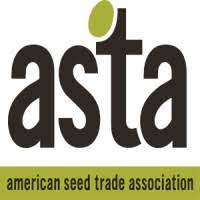 American Seed Trade Association (ASTA)
American Seed Trade Association (ASTA)
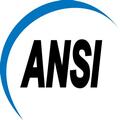 American National Standards Institute (ANSI)
American National Standards Institute (ANSI)
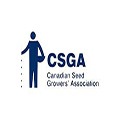 Canadian Seed Growers’ Association (CSGA)
Canadian Seed Growers’ Association (CSGA)
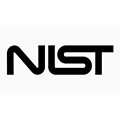 National Institute of Standards and Technology (NIST)
National Institute of Standards and Technology (NIST)
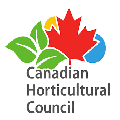 Canadian Horticultural Council (CHC)
Canadian Horticultural Council (CHC)
 Environmental Protection Agency (EPA)
Environmental Protection Agency (EPA)
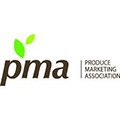 Produce Marketing Association (PMA)
Produce Marketing Association (PMA)
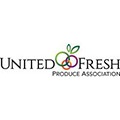 United Fresh Produce Association (United Fresh)
United Fresh Produce Association (United Fresh)
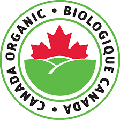 Canadian Organic Standards (COS)
Canadian Organic Standards (COS)
 United States Department of Agriculture (USDA)
United States Department of Agriculture (USDA)
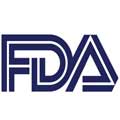 U.S. Food and Drug Administration (FDA)
U.S. Food and Drug Administration (FDA)
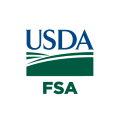 Farm Service Agency (FSA)
Farm Service Agency (FSA)
GAO’s Software Provides API
GAO’s RFID and BLE software offers a free trial for both the server-based and cloud versions, and offers an API to the important systems in the vegetable and melon farming industry such as:
Personnel Management
- Workforce scheduling and planning
- Labor tracking and attendance management
- Employee performance evaluation and training
- Task assignment and coordination
- Safety and compliance management
Equipment Management
- Equipment maintenance scheduling and tracking
- Inventory management of farming equipment and tools
- Equipment utilization and efficiency monitoring
- Equipment calibration and servicing
- Equipment lifecycle management
Access Control
- Access control to restricted areas, such as storage facilities or crop fields
- Monitoring and managing access permissions for employees, visitors, and contractors
- Security and surveillance management
- Data privacy and protection of sensitive information
- Gate and entrance automation systems
Warehouse Management
- Inventory management of harvested crops
- Quality control and grading of vegetables and melons
- Storage optimization and temperature control
- Order fulfillment and picking optimization
- Traceability and product labelling
Supply Chain Management
- Demand forecasting and production planning
- Procurement and vendor management
- Transportation and logistics coordination
- Cold chain management for perishable goods
- Traceability and product tracking along the supply chain
GAO has integrated its RFID, BLE, IoT and drone systems with some of leading software and cloud services in the vegetable and melon farming industry. Below are some of popular software and cloud services in the vegetable and melon farming industry.
- ADP Workforce Now: Offers a comprehensive suite of features for managing employee payroll, time and attendance, benefits administration, and HR tasks.
- Trimble Ag Software: Provides farm management software with equipment tracking, maintenance scheduling, and inventory management capabilities.
- Oracle HCM Cloud: Offers a comprehensive cloud-based human capital management (HCM) solution with modules for core HR, payroll, talent management, and workforce analytics.
- Fleetio: Offers cloud-based fleet management software with features for tracking and managing farm equipment, maintenance scheduling, and fuel tracking.
- Honeywell Pro-Watch: Offers an integrated security management system with access control features, including badge management, visitor management, and intrusion detection.
- SAP Extended Warehouse Management (EWM): Provides advanced warehouse management capabilities, including inventory management, order fulfillment, and labor management.
- Kinaxis Rapid Response: Provides a supply chain planning and response management platform with features for demand and supply planning, inventory optimization, and real-time collaboration.
- Google Cloud Platform (GCP): GCP offers cloud solutions that can be utilized for access control, warehouse management, and supply chain management. For access control, GCP Identity and Access Management (IAM) can be leveraged, while GCP IoT Core allows real-time monitoring. GCP’s supply chain management capabilities can be enhanced with services like Google Cloud Pub/Sub and Google Cloud Functions.
- FarmLogs: FarmLogs is application software specifically designed for farm management, including vegetable and melon farming. It offers features such as field mapping, crop planning, weather monitoring, and inventory management, helping farmers streamline their operations and make informed decisions.
- AgriWebb: AgriWebb is farm management software that provides tools for planning, recording, and analyzing farm activities. It offers features like livestock management, pasture monitoring, task scheduling, and inventory tracking, which are relevant to vegetable and melon farming as well.
- Microsoft Azure: Azure provides a comprehensive suite of cloud services for the vegetable and melon farming industry. It offers scalable infrastructure, data storage, and analytics capabilities. Azure IoT Hub enables real-time monitoring of farm equipment and environmental conditions. Azure Machine Learning can be used for predictive analytics and crop yield forecasting.
- Amazon Web Services (AWS): AWS offers a range of cloud services that cater to the specific needs of the vegetable and melon farming industry. AWS IoT Core allows farmers to monitor and manage connected devices and sensors on the farm. AWS Lambda and Amazon Simple Queue Service (SQS) enable event-driven data processing and messaging. AWS Data Lakes and analytics services facilitate data-driven decision-making.
 ADP Workforce Now
ADP Workforce Now
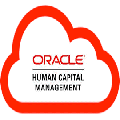 Oracle HCM Cloud
Oracle HCM Cloud
 Trimble Ag Software
Trimble Ag Software
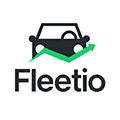 Fleetio
Fleetio
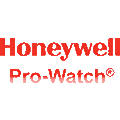 Honeywell Pro-Watch
Honeywell Pro-Watch
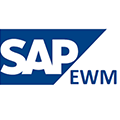 SAP Extended Warehouse Management (EWM):
SAP Extended Warehouse Management (EWM):
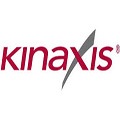 Kinaxis Rapid Response
Kinaxis Rapid Response
 Google Cloud Platform (GCP)
Google Cloud Platform (GCP)
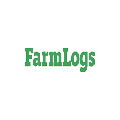 FarmLogs
FarmLogs
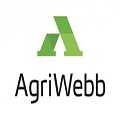 AgriWebb
AgriWebb
 Microsoft Azure
Microsoft Azure
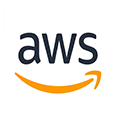 Amazon Web Services (AWS)
Amazon Web Services (AWS)
GAO has worked with some of the leading technology companies in the coal mining industry to provide integrated its RFID, BLE, IoT and drone solutions to customers. Here are some of the technology leaders in the vegetable and melon farming industry:
- Ag Leader Technology: Offers precision agriculture tools, including guidance systems, yield monitoring, and data management software.
- Raven Industries: Provides agricultural technology solutions, including precision farming tools, autonomous systems, and cloud-based platforms for farm management.
- AGCO Corporation: Offers a wide range of agricultural machinery and technology solutions, including precision farming tools and data analytics platforms.
- Yara International: Provides digital farming solutions, including precision crop nutrition tools, farm management software, and sensor-based technologies.
- Davis Instruments: Provides weather monitoring and environmental measurement devices, such as weather stations and soil moisture sensors.
- METER Group: Offers precision agriculture sensors and instruments for measuring soil moisture, temperature, and other environmental parameters.
- Decagon Devices: Provides sensors and instruments for measuring soil moisture, temperature, and other agronomic parameters.
- Sentera: Offers drone and sensor technology for precision agriculture, including multispectral and thermal cameras for crop monitoring and analysis.
- Conservis: Offers a farm management system that helps farmers plan, track, and analyze their operations for improved efficiency and profitability.
- Farmobile: Specializes in data collection and sharing platforms for agriculture, enabling farmers to collect, manage, and monetize their farm data.
- Iteris ClearAg: Offers a crop modeling and decision support system that provides weather-based insights for optimized farm management.
- Croptracker: Provides traceability and farm management software with features for record-keeping, inventory management, and compliance tracking.
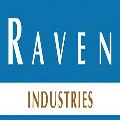 Raven Industries
Raven Industries
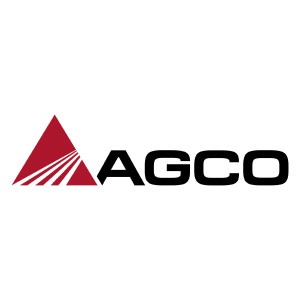 AGCO Corporation
AGCO Corporation
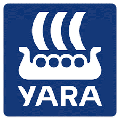 Yara International
Yara International
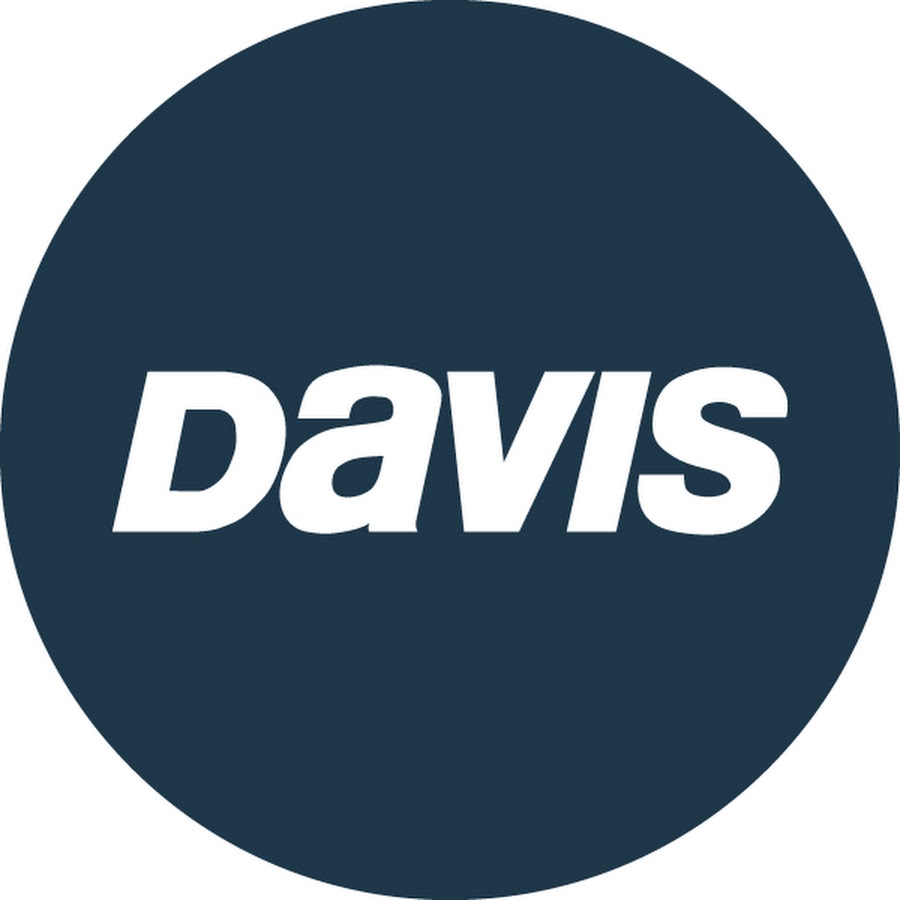 Davis Instruments
Davis Instruments
 METER Group
METER Group
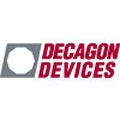 Decagon Devices
Decagon Devices
 Sentera
Sentera
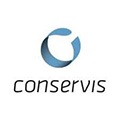 Conservis
Conservis
 Farmobile
Farmobile
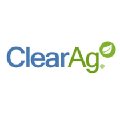 Iteris ClearAg
Iteris ClearAg
![]() Croptracker
Croptracker
Case Studies of RFID Applications
Here are three cases of applying RFID in the vegetable and melon farming industry:
Harvest Mark implemented RFID technology to improve traceability and enhance supply chain transparency in their produce operations. By affixing RFID tags to individual produce crates, Harvest Mark could track and record vital information such as harvest date, location, and quality parameters throughout the distribution process. This real-time data enabled them to identify potential quality issues, minimize waste, and streamline their supply chain. Additionally, the RFID technology provided consumers with access to detailed information about the origin and handling of the vegetables and melons, promoting trust and food safety. Harvest Mark’s implementation of RFID in the vegetable and melon farming industry showcased the potential for improved traceability and supply chain efficiency through advanced technology.
Dole implemented RFID technology to enhance their produce tracking and quality control processes. By attaching RFID tags to individual crates of vegetables and melons, Dole could automatically capture and store data on harvest dates, temperature conditions, and handling procedures. This real-time information allowed Dole to monitor the freshness and quality of their products throughout the supply chain. By leveraging RFID technology, Dole improved inventory management, reduced product waste, and ensured compliance with food safety regulations. The implementation of RFID by Dole in the vegetable and melon farming industry exemplified the benefits of enhanced visibility and traceability in optimizing product quality and consumer satisfaction.
Tanimura & Antle implemented UHF RFID technology to improve inventory management and enhance traceability in their farming operations. By embedding UHF RFID tags into individual crates of vegetables and melons, Tanimura & Antle could accurately track and manage their produce from the field to the packing facility. The UHF RFID system provided real-time data on product quantities, locations, and movements, enabling Tanimura & Antle to optimize their supply chain and minimize manual errors. The increased visibility and automation provided by UHF RFID technology improved operational efficiency, reduced costs, and ensured the delivery of high-quality products to customers. The case study of Tanimura & Antle in the vegetable and melon farming industry showcased the benefits of UHF RFID in streamlining operations and enhancing supply chain visibility.
GAO RFID Systems & Hardware for the Vegetable and Melon Farming
GAO RFID Inc. offers the largest selection of BLE gateways, BLE beacons, RFID readers, tags, antenna, printers, and integrated RFID systems for various industries, including the vegetable and melon farming industry:
BLE (Bluetooth Low Energy)
GAO offers advanced BLE gateways:
as well as versatile beacons with such important functions as temperature, humility, vibration and panic button:
GAO’s BLE technology is suitable for many industries, including the vegetable and melon farming industry.
UHF (Ultra High Frequency) RFID
GAO offers the largest selection of UHF RFID readers for various industries, including the vegetable and melon farming industry
GAO RFID offers the widest choice of UHF RFID tags, labels, badges, wristbands for various industries, including the vegetable and melon farming industry
and an array of antennas to address different applications:
HF (High Frequency), NFC (Near Field Communications) and LF (Low Frequency) RFID
GAO offers the largest selection of HF, NFC, and LF RFID readers for various industries, including the vegetable and melon farming industry:
- High Frequency 13.56 MHz Passive RFID Readers
- Low Frequency 134 kHz Passive RFID Readers
- Low Frequency 125 kHz Passive RFID Readers
HF, NFC and LF RFID tags, labels, badges, wristbands for various industries, including the vegetable and melon farming industry:
and antennas:
GAO also offers RFID printers:
Digital I/O adapters:
and relay controllers:
For embedded applications, GAO offers UHF, HF and LF RFID reader modules:
- UHF 860 – 960 MHz RFID Modules
- 13.56 MHz High Frequency RFID Modules
- 125 kHz Low Frequency RFID Modules
The RFID systems by GAO are highly popular for clients in the vegetable and melon farming industry:
Assets that can be effectively tracked using GAO’s technologies include
- Tractors: Used for land preparation, plowing, tilling, and other field operations. Tractors may be equipped with various attachments such as plows, tillers, seeders, and sprayers.
- Seeders: Designed to sow seeds evenly and efficiently in the fields. Different types of seeders are used depending on the crop and planting method, including broadcast seeders, precision seeders, and transplanters.
- Harvesters: Machines designed to harvest crops efficiently, such as vegetable harvesters for crops like lettuce, spinach, carrots, and radishes. Melon harvesters may be specifically designed for harvesting watermelons, cantaloupes, or other melon varieties.
- Irrigation Systems: Equipment used to provide controlled water supply to the crops. This can include sprinkler systems, drip irrigation systems, or overhead irrigation systems.
- Cultivation Equipment: Implements like cultivators, harrows, and rotavators are used to prepare the soil, remove weeds, and promote better soil aeration.
- Greenhouse Systems: Greenhouses are used to create controlled environments for growing vegetables and melons. Specialized equipment within greenhouses may include heating systems, cooling systems, ventilation systems, and shading systems.
- Mulching Equipment: Mulching helps conserve soil moisture, suppress weed growth, and regulate soil temperature. Mulch layers and mulch spreaders are used to apply mulch materials to the fields.
- Sorting and Grading Machines: Used to sort and grade harvested vegetables and melons based on size, color, quality, and other criteria. This ensures consistency in product quality and facilitates packaging.
- Packaging Equipment: Machinery such as weighing scales, bagging machines, and sealing machines are used for efficient and hygienic packaging of vegetables and melons.
- Cold Storage and Cooling Systems: Refrigeration and cooling equipment, including walk-in coolers and refrigerated trucks, are used to preserve the freshness and quality of harvested vegetables and melons.
- Pest and Disease Control Equipment: This may include sprayers, foggers, or other application equipment for the controlled and targeted application of pesticides, insecticides, and fungicides.
- Soil Testing Equipment: Instruments for analyzing soil composition, fertility, and nutrient levels, which help determine appropriate fertilization and soil management practices.
People or workers tracking system
Physical asset or operational equipment tracking system
Personnel or people access control system
Parking or vehicle control system
GAO Has Served the Vegetable and Melon Farming Extensively
GAO’s products and technologies have helped its customers in the vegetable and melon farming industry to achieve success in sustainable agriculture, precision agriculture, vertical farming, controlled environment agriculture, smart farming, farm-to-table, organic farming, farm management software, blockchain in agriculture, agtech.
GAO RFID Inc. has deployed RFID, BLE and IoT projects for many companies in the vegetable and melon farming industry, including many in its various divisions such as
- Field Crop Farming: Cultivation of vegetables and melons in open fields, including row crops, such as tomatoes, cucumbers, peppers, and leafy greens.
- Greenhouse and Nursery Operations: Production of vegetables and melons in controlled environments like greenhouses or nurseries, allowing year-round cultivation and protection against adverse weather conditions.
- Organic Farming: Cultivation of vegetables and melons using organic farming methods, focusing on natural inputs, soil health, and environmentally friendly practices.
- Hydroponics and Vertical Farming: Cultivation of vegetables and melons in soil-less systems using water-based nutrient solutions or in vertically stacked layers to optimize space and resource utilization.
Here are some of the leading companies in the vegetable and melon farming industry:
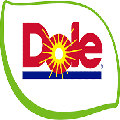 Dole Food Company
Dole Food Company
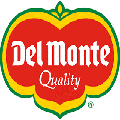 Del Monte Fresh Produce
Del Monte Fresh Produce
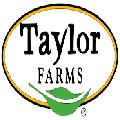 Taylor Farms
Taylor Farms
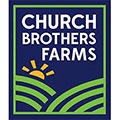 Church Brothers Farms
Church Brothers Farms
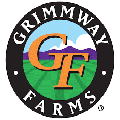 Grimmway Farms
Grimmway Farms
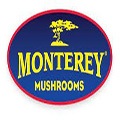 Monterey Mushrooms
Monterey Mushrooms
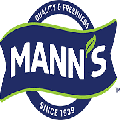 Mann Packing Corporation
Mann Packing Corporation
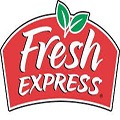 Fresh Express
Fresh Express
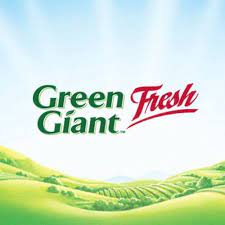 Green Giant Fresh
Green Giant Fresh
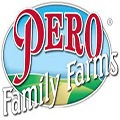 Pero Family Farms
Pero Family Farms
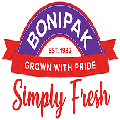 Bonipak Produce
Bonipak Produce
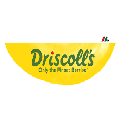 Driscoll’s
Driscoll’s
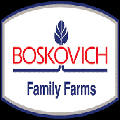 Boskovich Farms
Boskovich Farms
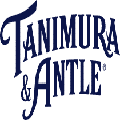 Tanimura & Antle
Tanimura & Antle
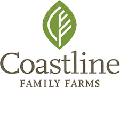 Coastline Family Farms
Coastline Family Farms
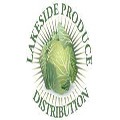 Lakeside Produce
Lakeside Produce
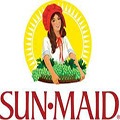 Sun-Maid
Sun-Maid
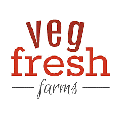 Veg-Fresh Farms
Veg-Fresh Farms
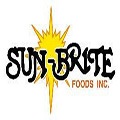 Sun-Brite Foods Incorporated
Sun-Brite Foods Incorporated
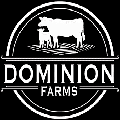 Dominion Farms
Dominion Farms
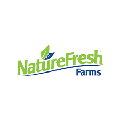 Nature Fresh Farms
Nature Fresh Farms
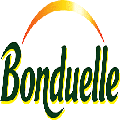 Bonduelle
Bonduelle
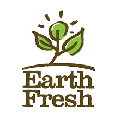 EarthFresh Farms
EarthFresh Farms
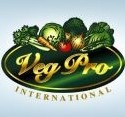 Vegpro International
Vegpro International

